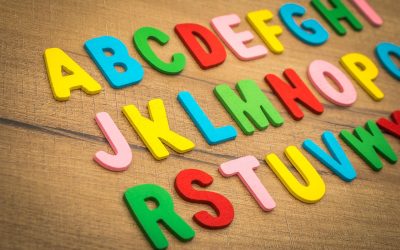Play isn’t just fun, it’s one of the most effective ways young children grow and succeed. In high-quality kindergarten programs, play helps children build essential skills like problem-solving, communication, and creativity.
When kindergarten students play games, pretend, or do hands-on activities, they’re not just having fun. They’re learning important skills like reading, writing, critical thinking, and social interaction.
Benefits of Learning Through Play
Play has benefits that extend far beyond simple enjoyment. It nurtures the foundations of early childhood education and helps prepare kids for the challenges of the kindergarten curriculum.
- Cognitive Development: Puzzles, block building, and problem-solving games strengthen memory, focus, and logical thinking. Introducing addition and subtraction early helps children see how play connects to real academic skills. These are skills they’ll use throughout the school year.
- Social Skills: Group activities allow kids to practice teamwork, sharing, and communication. Pretend scenarios teach cooperation, empathy, and conflict resolution.
- Emotional Growth: Play encourages self-expression, builds resilience, and helps children manage emotions. By gaining confidence through exploration, children prepare for future success
By encouraging learning through play, parents can help their children gain the skills needed to succeed in school. They also prepare them for life, all while having fun.
How Parents Can Support Learning at Home
Parents can support their child’s growth by creating simple routines and a small learning space with books, puzzles, and art supplies. Short, fun activities help kindergarten students practice reading and writing as well as addition and subtraction.
Everyday tasks, like cooking, gardening, or nature walks, can spark curiosity, observation skills, and critical thinking. Asking open-ended questions and encouraging children to explain their ideas helps strengthen problem-solving and communication skills.
Parents can also include games, storytelling, and imaginative play to make learning engaging and hands-on. By following their child’s interests and adding playful learning into daily life, parents help children develop the confidence and skills they need for a successful school year, while fostering a love of learning that lasts beyond the classroom.
Types of Play That Boost Learning
Different types of play help children develop in unique ways. By offering a variety of activities, parents can support their child’s growth across multiple areas.
- Creative Play: Activities like drawing, painting, making music, or imaginative games let children express themselves. These activities also encourage them to explore new ideas.
- Physical Play: Movement is essential for young learners. Outdoor activities, running, climbing, or simple coordination games help children build strength, improve balance, and develop motor skills. Physical play also supports focus and energy regulation, making it easier for kids to concentrate in school.
- Educational Games: Puzzles, counting games, letter recognition, and memory activities give children an enjoyable way to practice key academic skills. They can learn while having fun.
Combining creative, physical, and educational play gives kindergarteners a well-rounded learning experience. This approach is fun, engaging, and meaningful.

Including Play in Daily Learning
Parents and educators can make play part of everyday life with a balanced approach:
- Structured vs. Unstructured Play
- Guided games like crafts or science experiments develop targeted skills.
- Open-ended play, like building forts or role-playing, sparks creativity and independence.
- Balancing Screen Time with Hands-On Activities
- Use educational technology purposefully, while emphasizing active, hands-on play that engages both mind and body.
- Encouraging Curiosity and Exploration
- Follow your child’s interests, whether dinosaurs, cooking, or nature walks. Everyday activities can become meaningful learning opportunities.

Tips for Parents and Educators
Simple changes can turn ordinary moments into powerful learning experiences. Cooking teaches math and sequencing, laundry introduces sorting, and outdoor play develops observation skills.
By following a child’s curiosity and providing opportunities for play, parents and educators nurture learning naturally and engagingly.
Kindergarten Programs That Work
For busy parents, before and after-school programs can provide the support children need while keeping learning consistent. These programs include activities that reinforce the kindergarten curriculum. They also encourage social growth, keeping children engaged while giving parents peace of mind during a busy school year.
With before or after school activities designed to reinforce the kindergarten curriculum and encourage social development, these programs help children stay engaged and supported while giving parents peace of mind during a hectic school year.
Encouraging Kindergarten Kids Through Play
Learning through play has a lasting impact on kindergarteners. By engaging in creative, physical, and educational activities, children develop important cognitive, social, and emotional skills while building confidence and curiosity. Including both structured and unstructured play in daily routines helps make learning natural, enjoyable, and meaningful for young learners.
As an early childhood education school in Willis, TX, we create playful learning environments that support every child’s growth. Our approach focuses on development in multiple areas.
Want to help your child thrive through play? Contact us today to schedule a consult. Discover how playful learning strategies can make a real difference in your child’s development.







